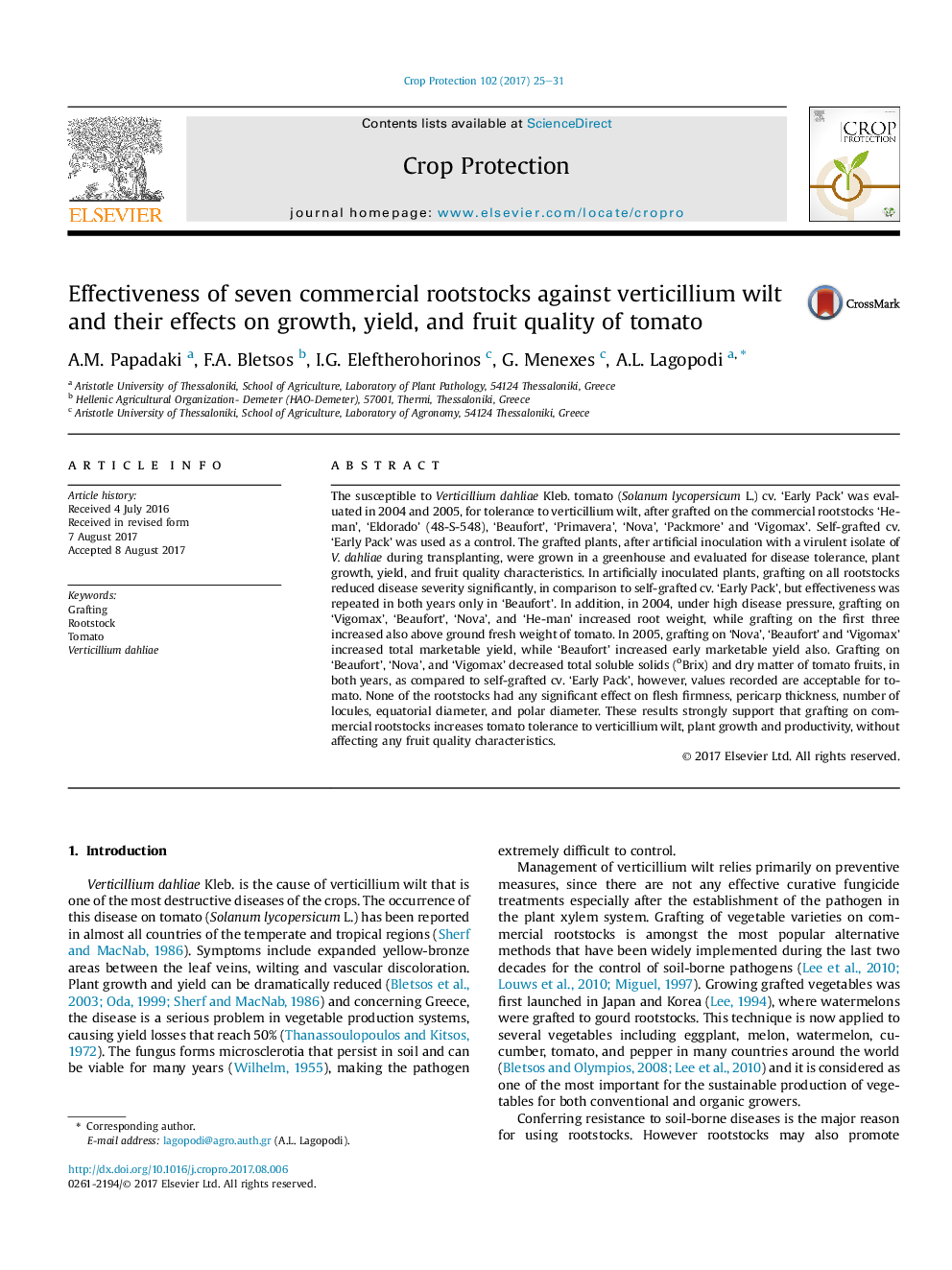| Article ID | Journal | Published Year | Pages | File Type |
|---|---|---|---|---|
| 5761003 | Crop Protection | 2017 | 7 Pages |
Abstract
The susceptible to Verticillium dahliae Kleb. tomato (Solanum lycopersicum L.) cv. 'Early Pack' was evaluated in 2004 and 2005, for tolerance to verticillium wilt, after grafted on the commercial rootstocks 'He-man', 'Eldorado' (48-S-548), 'Beaufort', 'Primavera', 'Nova', 'Packmore' and 'Vigomax'. Self-grafted cv. 'Early Pack' was used as a control. The grafted plants, after artificial inoculation with a virulent isolate of V. dahliae during transplanting, were grown in a greenhouse and evaluated for disease tolerance, plant growth, yield, and fruit quality characteristics. In artificially inoculated plants, grafting on all rootstocks reduced disease severity significantly, in comparison to self-grafted cv. 'Early Pack', but effectiveness was repeated in both years only in 'Beaufort'. In addition, in 2004, under high disease pressure, grafting on 'Vigomax', 'Beaufort', 'Nova', and 'He-man' increased root weight, while grafting on the first three increased also above ground fresh weight of tomato. In 2005, grafting on 'Nova', 'Beaufort' and 'Vigomax' increased total marketable yield, while 'Beaufort' increased early marketable yield also. Grafting on 'Beaufort', 'Nova', and 'Vigomax' decreased total soluble solids (oBrix) and dry matter of tomato fruits, in both years, as compared to self-grafted cv. 'Early Pack', however, values recorded are acceptable for tomato. None of the rootstocks had any significant effect on flesh firmness, pericarp thickness, number of locules, equatorial diameter, and polar diameter. These results strongly support that grafting on commercial rootstocks increases tomato tolerance to verticillium wilt, plant growth and productivity, without affecting any fruit quality characteristics.
Related Topics
Life Sciences
Agricultural and Biological Sciences
Agronomy and Crop Science
Authors
A.M. Papadaki, F.A. Bletsos, I.G. Eleftherohorinos, G. Menexes, A.L. Lagopodi,
